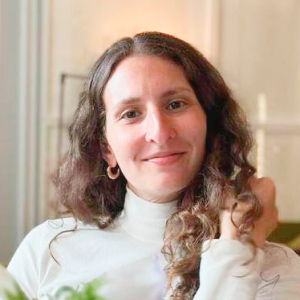
Do you remember the thrill of powering on your first computer? The anticipation as it hummed to life, ready to dive into a world of endless possibilities. That moment marked the beginning of a journey for many of us, a journey filled with curiosity, excitement, and a relentless desire to make that machine *do* things for us. The first time you created an ASCII pyramid or designed a webpage with operational buttons, it wasn’t just code on a screen; it was magic.
For those of us who turned this passion into a career, programming is not just a job; it’s a calling. We recall the days of our youth when programming was pure fun—unadulterated by the constraints and demands of professional development. Back then, the joy came from the challenge of thinking through the right design, striking the perfect balance between robust infrastructure and agility, and the sheer pleasure of coding. The ultimate reward was seeing our creations come to life and receiving positive feedback from those who interacted with our work.
However, as we transitioned into developing software within corporate environments, we found that a significant portion of our time and energy became consumed by the machinery of the professional world. Bureaucracy, extensive documentation, exhaustive testing protocols, pull requests, and peer reviews have become staples of our daily routines. While these elements are crucial for maintaining quality and collaboration in a professional setting, they can sometimes overshadow the core of what made us fall in love with programming in the first place. The creativity and direct engagement with the act of creation often take a backseat, leaving us yearning for the days when programming was just… fun.
Enter qodo (formerly Codium), a revolutionary platform designed to reignite the passion that drew us to programming. qodo (formerly Codium) understands the longing for those carefree days of creativity and exploration. It promises to strip away the layers of bureaucracy that have dampened our spirits, leaving us with the essence of programming that we so dearly miss. With qodo (formerly Codium), the focus shifts back to design thinking, balancing between infrastructure and agility, and the pure joy of coding and seeing our work come to life in the end product.
qodo (formerly Codium) is not just another tool; it’s a gateway to rediscovering the joy of programming. It allows us to concentrate on what truly matters, enabling us to deliver innovative solutions and receive the kind of feedback that fuels our passion. In a world where technology often feels like it stifles creativity rather than fostering it, qodo (formerly Codium) stands out as a beacon of hope. It embodies the promise of AI and technology: to take over the mundane and repetitive tasks, allowing us to focus on creative problem-solving and innovation.
There’s a famous meme that laments, “AI was supposed to take boring jobs and allow people to be creative, but the opposite has happened.” qodo (formerly Codium) challenges this notion head-on, proving that with the right approach, AI can indeed liberate us from the drudgery of routine tasks and reignite the creative spark that got us excited about programming in the first place.
So, why not let qodo (formerly Codium) take the bureaucracy off your hands and leave you with what you truly want to do? Embrace the opportunity to reconnect with the joy of programming, just like in the early days, but with the knowledge and experience you’ve accumulated over the years. qodo (formerly Codium) is not just about making programming fun again; it’s about enabling us to fulfill our creative potential and bring innovative ideas to life, unencumbered by the administrative overhead that has become all too common in the professional world.
Rediscover the magic of programming with qodo (formerly Codium). Let’s bring back the excitement, the creativity, and the fun. It’s time to turn the page and start a new chapter in our programming journey, one where joy and passion lead the way.







 Elana Krasner
Elana Krasner
 Marin Levrel
Marin Levrel
